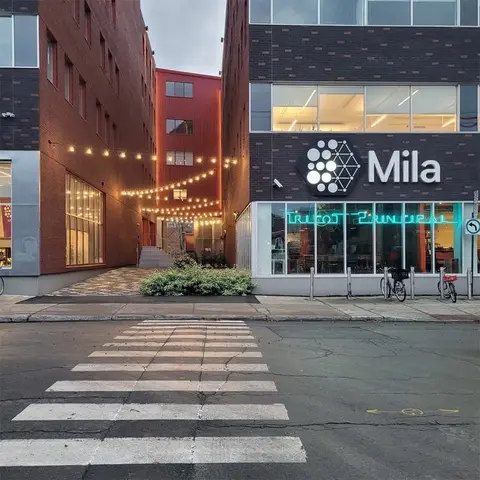Causal Cell Dynamics Lab – A Mila-Helmholtz International Project
Combining Artificial Intelligence (AI) Expertise to Tackle Cellular Processes in Disease
Combining Artificial Intelligence (AI) Expertise to Tackle Cellular Processes in Disease

Mila and its partners are committed to helping researchers in stem cell biology, biomedicine and related fields respond to some of the world’s most urgent health challenges such as cancer, diabetes, and antimicrobial resistance.
As part of this mission, Mila has joined forces with the research institute Helmholtz Munich and the Max Planck Institute for Intelligent Systems to form an international lab that will use big data and artificial intelligence to shed light on the role of cellular processes in the development of diseases.
The goal of this research effort is the modelling of cellular dynamics from single cell genomics as well as the latent causes driving those dynamics. Through this work, the team is developing methods for causally structured deep representation learning to improve understanding of cellular decisions.
Specifically, the aims are to :
To address this challenge, Mila and its partners launched the Causal Cell Dynamics Lab. The initiative merges Mila’s deep learning expertise, Helmholtz’ genomics-specific bioinformatics skills and causal learning specialists from the Max Planck Institute. The Causal Cell Dynamics Lab researchers have a five-year mandate to find ways to identify underlying causal structures that explain cell development and trajectories and to develop models that improve our of cell responses to environmental changes. The Lab is being co-funded by the Helmholtz Initiative and Networking Fund.
The Canada-Germany collaboration will forge strategic partnerships between leading-edge research institutions, allowing world-renowned researchers and promising PhD students to work abroad and strengthen international connections and networks.

Our diverse consortium will work at the intersection of AI and genomics. This will not only help us to predict important causes of various diseases, but also to make significant advances in AI and basic biology research.

The Causal Cell Dynamics Lab is a collaboration between Helmholtz Munich, the Max Planck Institute for Intelligent Systems and Mila.
For any inquiry about the project, please contact Mathieu Seyfrid(mathieu.seyfrid@helmholtz-muenchen.de), Program Manager at Helmholtz.
